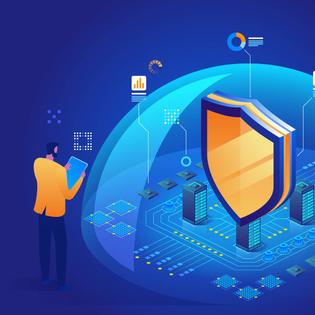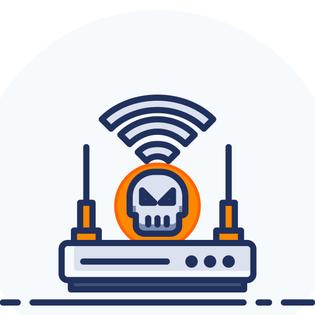Advertiser Disclosure
All About Cookies is an independent, advertising-supported website. Some of the offers that appear on this site are from third-party advertisers from which All About Cookies receives compensation. This compensation may impact how and where products appear on this site (including, for example, the order in which they appear).
All About Cookies does not include all financial or credit offers that might be available to consumers nor do we include all companies or all available products. Information is accurate as of the publishing date and has not been provided or endorsed by the advertiser.
Editorial Policy
The All About Cookies editorial team strives to provide accurate, in-depth information and reviews to help you, our reader, make online privacy decisions with confidence. Here's what you can expect from us:
- All About Cookies makes money when you click the links on our site to some of the products and offers that we mention. These partnerships do not influence our opinions or recommendations. Read more about how we make money.
- Partners are not able to review or request changes to our content except for compliance reasons.
- We aim to make sure everything on our site is up-to-date and accurate as of the publishing date, but we cannot guarantee we haven't missed something. It's your responsibility to double-check all information before making any decision. If you spot something that looks wrong, please let us know.
If you searched for the best online security, you’ve no doubt discovered there are two main categories that fit the bill. When you check out antivirus software and anti-malware, you may see some similarities, but don’t confuse the two. These are not the exact same products.
We’ll show you how antivirus prevents and deletes viruses, and how anti-malware protects your data from newer threats. Keep reading to learn all about how antivirus and anti-malware both work to protect your device from dangerous viruses and other malware.
What is anti-malware?
What’s the difference between antivirus and anti-malware?
Which one should I use?
Best antivirus and anti-malware software
Antivirus vs. anti-malware FAQ
Bottom line
What is antivirus?
Antivirus is a software program designed to prevent, detect, scan, and delete viruses from your device. Most antivirus software runs in the background while you’re online and provides real-time protection against harmful cyberattacks. Some antivirus programs include additional security solutions like a firewall or ad blockers.
The purpose of antivirus is to guard against computer viruses and remove any threats detected. Your antivirus should keep your device clean and malware-free.
Different antivirus software works in various ways:
- Behavior-based detection looks at the intention of an object. If it’s unauthorized, the antivirus shows the file as having malicious intent.
- Heuristic-based detection looks for previously known issues and flags them as suspicious.
- Signature-based detection will tag an object for future reference after analyzing it for specific patterns.
- Application whitelisting only allows files and programs to run that are known to be good and can help protect endpoints like your smartphone, tablet, or other connected devices.
What is anti-malware?
Anti-malware software protects data from malware, or malicious software and files. The software scans a device to prevent and remove malware. It is developed to safeguard your computer system from various types of malware, like newer Trojans, adware, ransomware, spyware, keyloggers, phishing, and worms.
Anti-malware software protects your device from newer, more sophisticated cybersecurity threats, like the ones in the wild. In-the-wild threats are viruses that spread on real-world devices, not just in test environments. These threats have been discovered on machines being used for real-world purposes.
Anti-malware uses three techniques to detect malware issues. These methods are behavior-based, signature-based, and sandboxing.
- Behavior-based detection looks for suspect processes that match malicious behaviors.
- Signature-based detection uses a unique digital footprint of malware that has already been discovered and looks for them on your device.
- Sandboxing runs the suspect object in a virtual environment and analyzes the behavior, isolating it from other files for safety.
What’s the difference between antivirus and anti-malware?
Antivirus programs protect against more established threats, like the traditional worms, viruses, and Trojans. Anti-malware specializes in newer exploits, like polymorphic malware and zero-day malware.
Antivirus programs are good at protecting against more predictable, dangerous malware. Anti-malware protects more of the current, yet still dangerous, online threats. Sometimes anti-malware updates the detection rules faster than antivirus, so it may detect malware faster against newer threats if you’re browsing the internet frequently.
Still, antivirus offers better protection against malware you could obtain from traditional sources. If you get a dangerous email attachment or link, a good antivirus is your best friend. Antivirus is also a strong protector against viruses generally obtained through external devices like USBs.
Polymorphic viruses can change form to avoid detection, replicating themselves into different shapes. Since these threats can change form, it’s nearly impossible for antivirus programs to catch or prevent them.
Zero-day malware gets pushed out before software companies have the time to release a patch for the problem. These threats are aptly named because there is zero time to develop a patch for them. That delay leaves a wide open window of time for virus vulnerability
Which one should I use?
Since technology is ever-evolving, it may be hard for one program to catch every virus or malware threat. We think your best bet is to get both. If you have a solid antivirus catching all the traditional threats, and anti-malware guarding against the newer ones, you’ll have much less to worry about.
You don’t always have to buy two different programs to accomplish this. A software program like Malwarebytes Premium combines both types of security to offer dual protection. If you decide to get two products, make sure they will work while running together. Some products cannot run at the same time.
If you’re on a budget and can only afford to purchase one, we recommend an antivirus program because they’re great for casting a wide net of protection against known malware attacks. Most antivirus programs also offer malware detection and malware removal tools.
If you’re more concerned with being proactive against new threats and want tools that can destroy activated malware, shopping for good anti-malware tools may be the best option. Anti-malware may offer you a comprehensive solution to maintain online security against all the new viral threats.
Best antivirus and anti-malware software
You can go with a solid antivirus like AVG, a budget-friendly software, or Malwarebytes, which has been a trusted name for many years.
Keep in mind that the best antivirus software doesn’t have to be the most expensive. Programs like TotalAV, which is our budget antivirus pick, and Avast's free antivirus still offer excellent protection. These programs won’t interrupt your workflow and have been around for years, so they’re some of the more trusted products. They also won’t break the bank!
You could opt for a program like Adaware or Spybot Search & Destroy if you want to check out anti-malware tools. These are two of the popular programs often purchased. Ad-Aware comes with a webcam blocker, so hackers can’t watch you while you’re online. Spybot comes with several different features, like rootkit scans and antispyware tools.
Antivirus vs. anti-malware FAQ
Is antivirus or anti-malware more effective?
Antivirus and anti-malware are both effective. Antivirus is best at protecting against traditional forms of malware, while anti-malware guards against newer threats.
What’s the difference between viruses and malware?
The difference between viruses and malware is that malware is an umbrella term, covering all kinds of threats, while viruses are one type of malware among many others.
What’s the difference between antivirus and antispyware?
The difference between antivirus and antispyware is that antivirus software is designed to protect your device from malware by scanning, detecting, and removing the threats. Antispyware is security software that specifically detects and removes unwanted spyware programs.
Bottom line
If you’re concerned about security when you’re online, there are a number of software programs that can offer protection. When you want a good all-around product that catches the traditional malware programs, an antivirus is what you need. When you want to prevent those newer malware threats from invading your device, anti-malware programs can prevent unauthorized access from unknown, in-the-wild malware.
When you want coverage for traditional and newer threats, try to find a combination software that gives you a bilayered protection approach. Learning how to protect yourself from malware is just as essential as using trusted antivirus software to keep your data secure.
-
All-in-one protection for your personal info and privacy
-
Excellent antivirus protection
-
Additional features like a file shredder and parental controls
-
Multiple pop-ups for text notifications can be annoying





